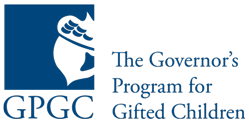Throughout the summer we will be posting weekly reports from the classes. Please let us know if there’s anything else you’d like to see or if you have any questions for specific instructors.
We are also posting regularly on Facebook. You don’t have to join Facebook to see our posts. The link is: https://www.facebook.com/gpgcla/
Freshmen (First Year) Classes:
Freshmen Science (Calvin Runnels, Instructor)
Second to last week! This week we focused on physics and math, learning about Newton’s laws of motion and probability.
Tuesday: We discussed the four fundamental forces, Newton’s laws of motion, velocity, acceleration and free fall. We explored these concepts through demos involving dropping various objects.
Wednesday: We talked about probability — I showed them the Monty Hall Problem, discussed the law of large numbers and expected vs. experimental values using dice and Rock Paper Scissors, and then worked more probability problems using a deck of cards and various games such as High-Low and Blackjack.
Thursday: We continued our discussion of basic physics and Newton’s laws, diving more deeply into the concepts of inertia, force, mass vs. weight, and velocity vs. speed. Then we built balloon-powered cars out of water bottles, balloons, skewers, and bottle caps to demonstrate Newton’s 3rd law.
Friday: We watched nature documentaries about bugs, mammals, and the arctic and ate snacks!
Freshman Composition (Reese Menefee, Instructor)
This week, students were introduced to found poems, epistolary poems, and prose poems. They typed and finished their poems for class and workshopped those poems together. They shared their work aloud and gave constructive feedback to each other. In addition to finishing poetry, students also discussed positive workshop practices and started working on their final writing project.
Tuesday- Students were introduced to found poetry and epistolary poetry. They read “Dear Universe” by Wendy Videlock, “Dear” by Jill Osier, and a hybrid poem by Aimee Nezhukumatathil.
Wednesday- Students worked in the library. They were asked to turn in their typed poems by the end of class.
Thursday- Students read “Poetry Workshop 101” before workshopping their poems. They read their work aloud and gave constructive feedback to each other.
Friday- I discussed the final writing portfolio with the class and they participated in an in-class writing activity.
Freshmen Humanities (Christine Bertrand, Instructor)
This week we read and discussed Plato’s “Allegory of the Cave,” one of the most widely-read passages from The Republic. It addresses the struggle of humans to face new understanding and knowledge and our natural resistance to accepting that we may have been wrong. Next week students will close the summer humanities class with a researched written paper applying the concept of the allegory to an event or topic of their interest, explaining how some new understanding or discovery faced resistance by the majority of people and how some revolutionary thinkers pushed past that resistance to new understanding of their world.
Graduate Classes:
Grad Psychology (Dr. Linda Brannon, Instructor)
Our topic for the weeks was memory, which included a review of concepts related to learning (because there can’t be memory without learning) and then information about sensory memory, short-term memory, and long term memory. We covered the topic of amnesia later in the week.
Monday was a holiday, so Tuesday was our first class day of this week. We reviewed the concepts of Pavlovian conditioning, operant conditioning, and observational learning.
We began the topic of memory on Tuesday, but the discussion continued on Wednesday. On those days, we examined three different types of memory—sensory memory, short-term memory, and long-term memory. Sensory memory is based on physical sensory input, such as light falling on the retina, which creates an image on the retina. However that image fades very rapidly—in less than a second. When people attend to that information, it may get the person’s attention, and transfer to short-term memory (STM). That memory system can hold information for up to 30 seconds, which allows processing that can move the information to long-term memory.
On Wednesday, we discussed some of the flaws of memory, focusing on a series of experiments that confirmed how incorrect long-term memory can be. That research has become very influential because it showed that people are prone to mistakes in memory, which affects legal testimony. That is, eyewitnesses are not always accurate in giving evidence or identifying perpetrators. I arranged an activity that confirmed that gifted children are as prone to these memory distortions as are others.
On Thursday we began to discuss amnesia and identified two types—retrograde and anteriograde amnesia. Retrograde amnesia affects individuals by making parts of long-term memory inaccessible. However, most recover those memories, which indicates that the information does no disappear from memory. The media are a main source of misinformation about amnesia, and we covered some of those inaccuracies.
We also had our weekly quiz on Thursday, and the grades were good.
On Friday we discussed anterograde amnesia, which occurs due to damage to the hypocampus, which is a brain structure. That disorder results in individuals who are unable to form new memories, but their existing memories are not affected. That description may not sound all that serious, but it is devastating—people with this type of memory have a very short time to notice and process information, and that information will never become long-term memory.
Conflict and Diplomacy (Jessica Markstrom, Instructor)
On Tuesday we discussed how colonialization and decolonialization affects civil conflict outbreak and relapse. We watched War Don Don, a documentary on the International Criminal Court’s trial of Issa Sessay regarding his actions as a leader for the RUF in the Sierra Leone civil war, Wednesday and Thursday. On Friday we continued the state development project with several students deciding to engage in international conflict.
Graduate Creative Writing (Reese Menefee, Instructor)
This week, students began discussing hybrid forms. They were introduced to the lyric essay, zuihitsu, prose poem, and found poem. As a class, we discussed their final project. Students began working on their choice pieces and final reflections. They were given time to type in the library.
Tuesday- Students were introduced to the lyric essay and the zuihitsu. As a class, we discussed the final choice piece and the final reflection.
Wednesday- Students were introduced to found poetry and prose poetry. They spent the remainder of class brainstorming for their choice pieces.
Thursday- Students worked on their choice pieces in the library.
Friday- Students worked on their choice pieces in the library

